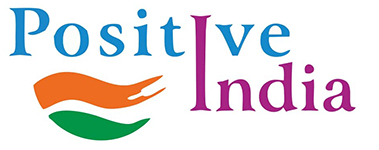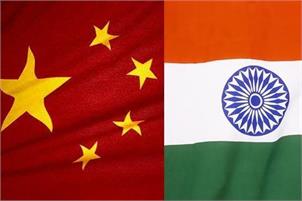

Beijing: Chinese Foreign Minister Wang Yi has said India and China’s strategic interests outweigh “partial frictions” and handling of the Dokalam standoff through diplomatic means reflects the importance of bilateral ties.
Ahead of his visit to India to attend the Russia-India- China (RIC) foreign ministers’ meeting to be held in New Delhi today during which he would also hold talks with top Indian officials, Wang said China always values good neighbourliness and friendship between the two countries as “we are each other’s big neighbours and ancient civilisations”.
He said India-China strategic interests outweigh differences and “partial friction”.
“We have handled the issue of cross-border incursions by the Indian border troops into China’s Donglang (Dokalam) area through diplomatic measures,” Wang told a symposium here last week, maintaining Beijing’s stand.
“Through diplomatic means, the Indian side withdrew its equipment and personnel which reflected the value and importance of China-India relations and demonstrated sincerity and responsibility of maintaining regional peace and stability,” he said in his speech in Chinese posted on the website of the foreign ministry.
“China and India have far greater shared strategic interests than differences, and far greater needs for cooperation than partial friction,” he said.
As long as China and India continue to engage in in-depth strategic communication and promptly dispel strategic misgivings, the strategic value of bilateral cooperation will be presented more clearly to the people, there will be a “prospect of the dragon and the elephant dancing together with 1 + 1 = 11 outlook,” Wang said.
The references to India by Wang were part of a lengthy speech about China’s diplomatic achievements in 2017 and its relations this year with various countries including the US, Russia, Japan and countries in the disputed South China Sea region.
Wang’s visit to New Delhi is the first by a top Chinese official to India after the 73-day Dokalam standoff and after the commencement of the second five-year term of President Xi Jinping.
The over two-month Dokalam standoff ended on August 28 after Chinese troops stopped building a key road close to India’s ‘Chicken Neck’ corridor. India had objected to the construction highlighting its security concerns. The road was being built by China in an area also claimed by Bhutan.
Wang’s visit to Delhi is expected to be followed by top Chinese diplomat Yang Jiechi’s trip later this month to attend the 20th round of China-India boundary talks.
Yang along National Security Advisor (NSA) Ajit Doval are the designated special representatives for the border talks later this month. Both officials are also mandated to discuss the state of entire gamut of bilateral ties.
In his address, at the symposium themed on international developments and China’s diplomacy in 2017, Wang spoke about China’s foreign policy outlook enunciated by the once-in- five-years Congress of the ruling Communist Party of China (CPC) held in October.
The 19th CPC National Congress had charted the course for China’s external relations. Wang said China needs to create a more favourable external environment and stronger external impetus to create a moderately prosperous society in all respects.
“For China’s diplomacy in the new era, we will take a longer and broader perspective and be even more open-minded and resourceful,” he said.
He reiterated that “war is by no means acceptable” in dealing with the nuclear issue related to North Korea, stressing that the possibility of negotiations remains.
On ties with the US, he said “China is willing, on the basis of mutual respect, to live peacefully with the American superpower. The US needs to understand and accept a China that is following its own path of socialism with Chinese characteristics, one suited to its own conditions,” official media quoted him as saying.
He said the China-Russia relationship has become a major cornerstone for world peace and stability, fairness and justice, and win-win cooperation.
On the China-proposed Belt and Road Initiative (BRI) he said it has become “the most popular international public goods programme”.
Chinese businesses have invested over USD 50 billion and created nearly 200,000 local jobs in countries that are participating, he said.
India has objected to the China-Pakistan Economic Corridor (CPEC) as it traverses through Pakistan-occupied Kashmir (PoK). CPEC is a part of the BRI.
On Wang’s visit to Delhi, Chinese think tanks said RIC foreign ministers’ meeting offers Beijing and New Delhi an opportunity for face-to-face communication, which will effectively help both sides step out of the shadow of the Dokalam standoff.
“Admittedly, the past months have witnessed a downbeat narrative between the neighbours rather than a positive one, but with the meeting, China and India will send a message to the world that they will return to a stable and peaceful track,” said Qian Feng, an analyst at the Chinese Association for South Asian Studies told state-run Global Times.
China and India have disagreements on counter-terrorism especially when it involves Pakistan, and China is unlikely to give up its stance on this issue during this meeting, Wang Dehua, head of the Institute for South and Central Asian Studies, told the daily.
China has opposed India’s moves to get Jaish-e-Muhammad leader Masood Azhar listed as a terrorist by the UN.
Wang Dehua also said persistent and honest talks between the two sides may help sort out differences on BRI.
China also continues to oppose India’s bid to enter the NSG primarily on the grounds that New Delhi is not a signatory to the Nuclear Non-Proliferation Treaty (NPT).


